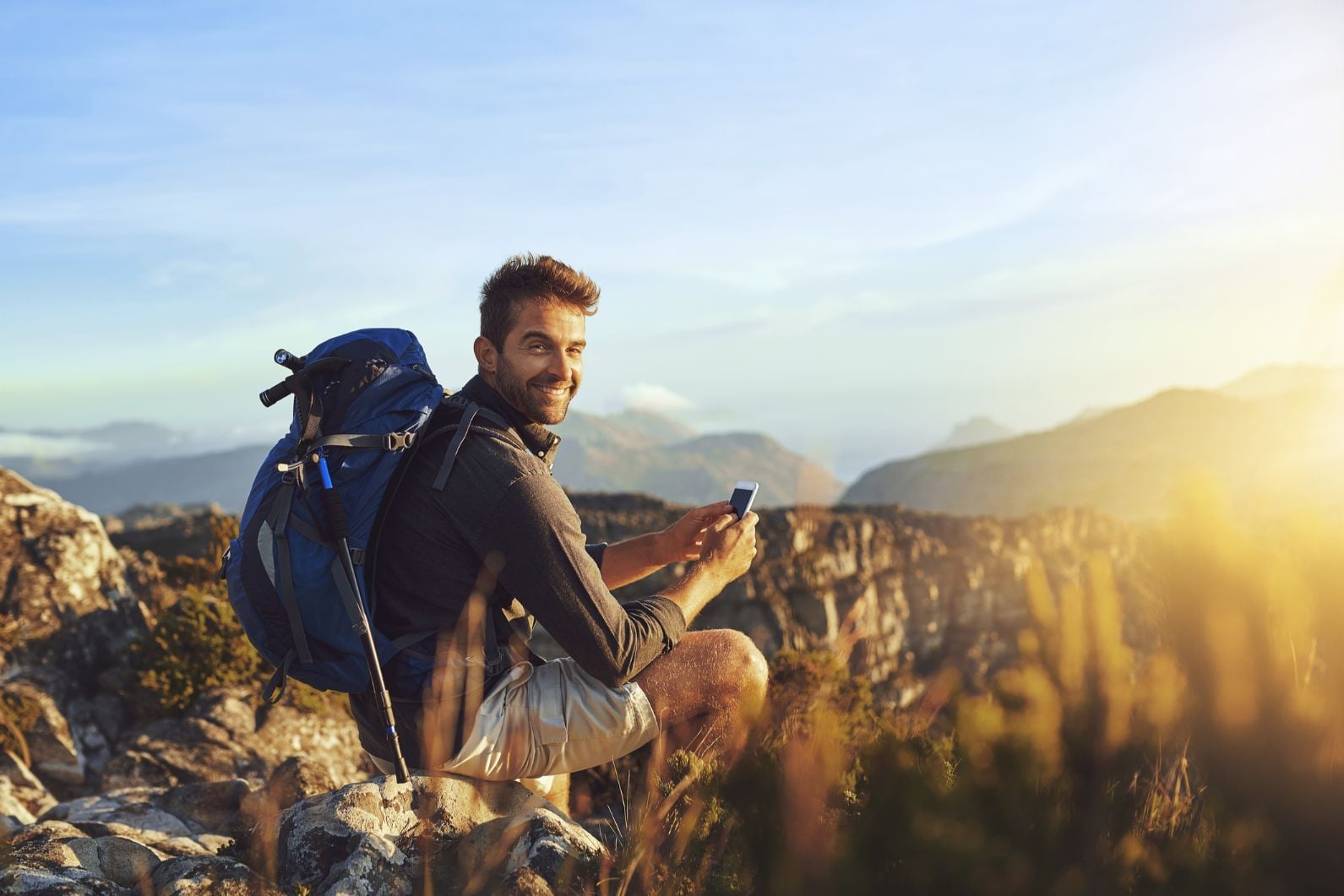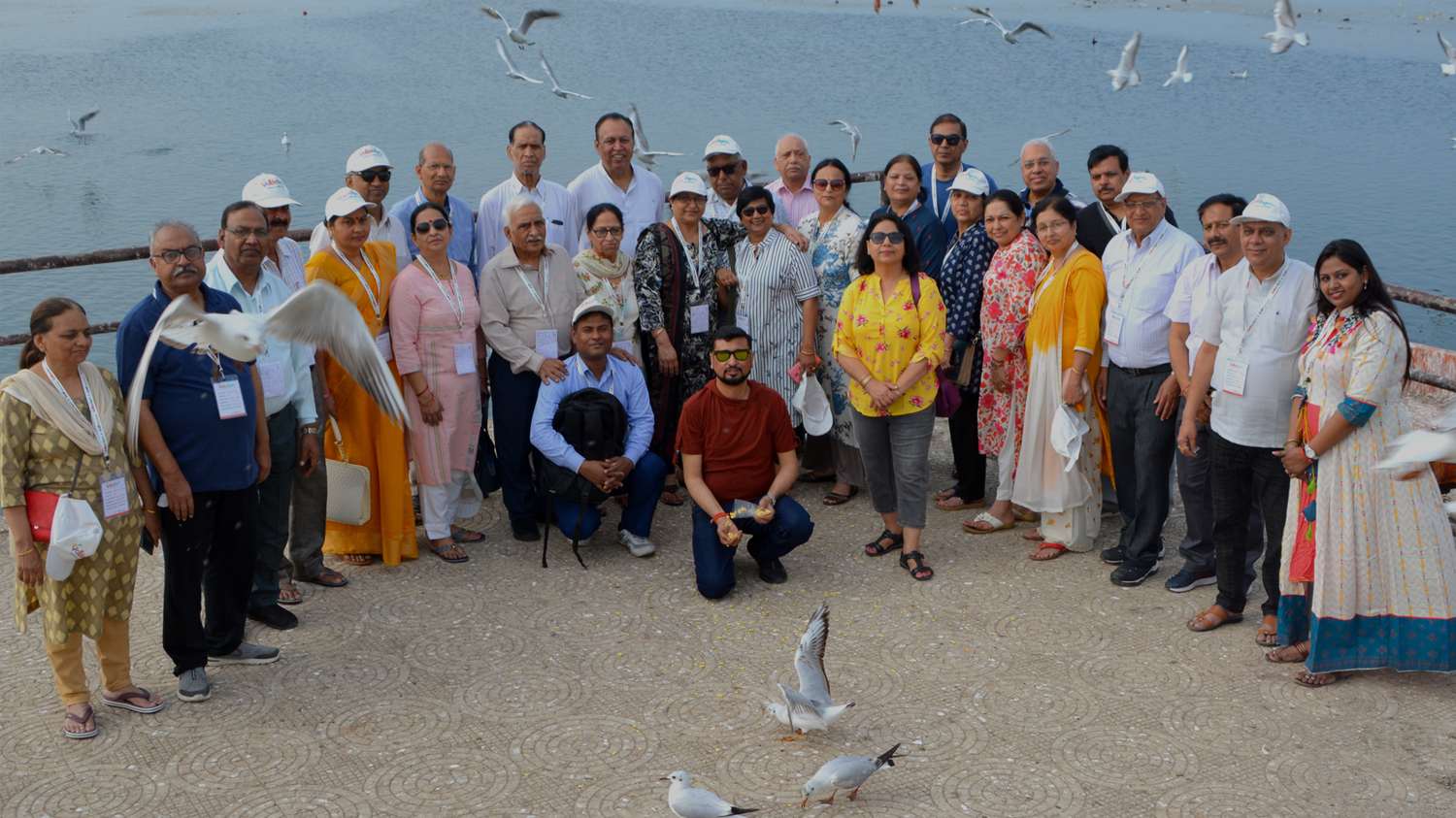Tours for seniors traveling alone offer a unique blend of independence and support, catering to the specific needs and desires of older adults venturing out on their own. This burgeoning sector of the travel industry provides a variety of options, from fully escorted tours that handle every detail to independent itineraries that allow for maximum flexibility. Understanding the different tour types, safety considerations, accessibility options, and budgeting strategies is crucial for planning a fulfilling and worry-free solo adventure.
This article explores the diverse landscape of travel options designed for senior solo travelers, examining various tour types, safety precautions, accessibility accommodations, social enrichment opportunities, and financial planning. We’ll delve into the practical aspects of planning a trip, from choosing the right tour operator to managing your budget and staying connected with loved ones. Ultimately, the goal is to empower seniors to confidently embark on solo adventures, enriching their lives with new experiences and lasting memories.
Safety and Security Considerations
Solo travel offers unparalleled freedom, but for senior citizens, prioritizing safety is paramount. This section Artikels crucial safety measures to ensure a worry-free and enjoyable travel experience. Careful planning and preparedness significantly reduce potential risks and enhance the overall sense of security.
Essential Safety Measures for Solo Senior Travelers
Prioritizing safety is crucial for solo senior travelers. The following table summarizes key safety measures to implement before, during, and after a tour. Proactive steps before departure minimize risks, while vigilant practices during the trip ensure ongoing safety, and post-trip actions help maintain security and address any unforeseen issues.
| Measure | Before Tour | During Tour | After Tour |
|---|---|---|---|
| Informative Travel Documents | Make multiple copies of passport, visa, itinerary, emergency contacts, and travel insurance policy. Store copies separately from originals. | Carry a copy of essential documents in a readily accessible, secure location. Leave a copy with a trusted person at home. | Review all documents upon return, confirming that everything is in order. |
| Medical Preparedness | Consult your doctor for necessary vaccinations and medications. Carry a comprehensive medical kit with prescriptions and over-the-counter remedies. | Keep medications in their original containers and readily accessible. Inform tour guides or hotel staff of any allergies or medical conditions. | Schedule a post-trip checkup with your doctor to address any health concerns arising during the trip. |
| Secure Accommodation and Transportation | Book reputable accommodations with good security measures. Research transportation options and pre-book where possible, opting for reliable services. | Avoid walking alone at night or in poorly lit areas. Use reputable transportation services and be aware of your surroundings. | Review transportation and accommodation experiences to identify areas for improvement in future travel. |
| Emergency Contacts and Communication | Share your itinerary with family and friends. Program emergency contact numbers into your phone and carry a physical list. | Regularly check in with loved ones. Utilize technology to stay connected (e.g., WhatsApp, satellite phone). | Inform family and friends of your safe return and any changes to your plans. |
| Personal Security Awareness | Research your destination’s safety guidelines and potential risks. Learn basic phrases in the local language. | Trust your instincts. Avoid displaying expensive jewelry or large amounts of cash. Be mindful of your belongings at all times. | Review your travel experiences and identify any security concerns or areas where you could improve your personal safety practices. |
The Importance of Senior-Specific Travel Insurance
Travel insurance tailored for seniors is not merely a suggestion; it’s a necessity. Standard policies may not adequately cover the specific health risks and needs of older travelers. Senior-specific policies typically offer broader coverage for pre-existing conditions, medical evacuations (which can be particularly expensive), and extended hospital stays. Essential coverage aspects include medical expenses, emergency medical evacuation, repatriation of remains, trip cancellation or interruption, and lost or stolen luggage.
The peace of mind provided by comprehensive coverage is invaluable, especially when traveling alone. For example, a pre-existing condition like heart disease might be excluded from a standard policy, but a senior-specific policy would likely offer at least partial coverage for related medical emergencies abroad.
Staying Connected While Traveling Alone
Maintaining consistent communication with loved ones is vital for solo senior travelers. This provides reassurance to both the traveler and their family. Technology plays a crucial role. Regular phone calls and text messages are simple yet effective. Apps like WhatsApp or Facebook Messenger allow for easy video calls and messaging, enabling visual contact.
Consider a satellite phone for areas with limited cell service. Sharing your itinerary and daily updates helps loved ones track your progress and ensures they know your whereabouts. Regular check-in times, even if just a quick text message, provide a sense of security and connection. Furthermore, informing family and friends of planned activities and expected return times minimizes unnecessary worry.
You also will receive the benefits of visiting aarp trips today.
Social and Enrichment Aspects

Tour operators catering to solo senior travelers recognize the importance of fostering a sense of community and combating potential feelings of isolation. Successful programs actively cultivate connections between participants, transforming a solo journey into a shared experience rich in companionship and lasting memories. This is achieved through carefully designed itineraries and engaging activities that encourage interaction and shared experiences.Creating opportunities for socialization is paramount.
This isn’t simply about arranging group meals; it’s about strategically integrating social interaction into the fabric of the tour. The design of activities, the structure of the itinerary, and the overall atmosphere all contribute to building a supportive and friendly environment where lasting bonds can form.
Enriching Activities and Excursions for Senior Travelers
A well-structured itinerary should incorporate a variety of enriching experiences tailored to the interests and physical capabilities of senior travelers. This might include guided tours of culturally significant sites, allowing for deeper understanding and appreciation of history and local traditions. Gentle nature walks and scenic drives provide opportunities for relaxation and enjoyment of the natural world, while optional activities cater to individual preferences.
For example, a tour might offer a visit to a renowned art museum, a cooking class featuring local cuisine, or a leisurely afternoon of wine tasting. These activities provide a blend of intellectual stimulation, cultural immersion, and physical activity, all within manageable parameters.
Social Activities Integrated into Senior Solo Travel Itineraries
The success of a solo senior travel experience hinges on the opportunities for social interaction. A thoughtfully designed itinerary proactively facilitates connections, fostering a sense of belonging and shared adventure.
- Welcome Reception and Icebreaker Games: A relaxed welcome event with icebreaker games can help participants connect immediately, overcoming initial apprehension and establishing a friendly atmosphere. This might involve simple games that encourage conversation and shared laughter.
- Small Group Activities: Dividing the group into smaller units for activities like walking tours or cooking classes fosters more intimate interactions and allows for deeper connections between individuals. This approach creates a more personalized experience.
- Shared Meals and Optional Social Gatherings: Scheduled group meals and optional evening gatherings provide ample opportunity for casual conversation and bonding. These settings can be informal, encouraging relaxed and natural interactions among participants.
- Themed Events and Workshops: Thematic events, such as wine tasting, photography workshops, or painting classes, provide a shared interest around which participants can connect. These activities can serve as a springboard for conversations and shared experiences.
- Optional Excursions and Activities: Offering a range of optional excursions and activities allows individuals to pursue their interests while still having the chance to interact with others who share similar passions. This allows for flexibility and caters to diverse interests within the group.
Pre-Trip Planning and Preparation: Tours For Seniors Traveling Alone
Planning a solo trip as a senior citizen requires meticulous preparation to ensure a smooth and enjoyable experience. This involves researching suitable tour operators, meticulously booking the trip, and compiling a comprehensive checklist of essential documents and items. Thorough preparation minimizes potential stress and maximizes the enjoyment of the journey.
Researching and booking a tour for senior solo travelers is a multi-step process. Begin by identifying your desired destination and travel style. Do you prefer escorted tours with a group, independent travel with pre-arranged accommodations, or a combination of both? Once you’ve defined your preferences, start researching tour operators specializing in senior travel. Reputable companies often feature detailed itineraries, testimonials, and contact information readily available on their websites.
Compare prices, inclusions (such as flights, accommodation, and excursions), and read reviews from past travelers, paying close attention to comments related to accessibility and support services for solo travelers. When you’ve shortlisted a few options, contact the tour operators directly to ask clarifying questions and discuss your specific needs and preferences. Once you’ve selected your tour, complete the booking process, ensuring you understand the terms and conditions, cancellation policies, and any necessary travel insurance requirements.
A final confirmation email or document from the tour operator should serve as your official booking confirmation.
Essential Documents and Packing Checklist
A comprehensive checklist is crucial for stress-free travel. Categorizing items simplifies packing and ensures you don’t forget essential documents or personal items. Remember, carrying essential documents in a secure, easily accessible location is paramount.
- Travel Documents: Passport (with at least six months validity remaining), visa (if required), flight tickets/e-tickets, tour confirmation, travel insurance policy details.
- Medical Documents: Medication list with dosages, prescription copies, doctor’s contact information, allergy information, emergency medical card, copy of health insurance card.
- Personal Documents: Driver’s license or other photo ID, credit cards, debit cards, emergency contact information (family, friends, doctor), copies of important documents (stored separately from originals).
- Other Essentials: Comfortable walking shoes, appropriate clothing for the climate, toiletries, any necessary medical equipment (e.g., walking stick, hearing aid), adapter plugs (if needed), a small first-aid kit, sufficient cash and travel money.
Informing Family and Friends of Travel Plans, Tours for seniors traveling alone
Keeping family and friends informed about your travel plans is a crucial safety precaution for solo senior travelers. Sharing detailed itinerary information ensures they can easily contact you if needed and allows them to monitor your whereabouts.
Provide your family and friends with a copy of your itinerary, including flight details, accommodation information, and planned activities. Share emergency contact information, including your local contact number and the contact information for your tour operator. Consider regularly checking in with them, especially if traveling to remote areas or engaging in activities with inherent risks. A simple text message or email can provide reassurance and allows for quick communication in case of unexpected events.
Traveling solo as a senior can be an incredibly rewarding experience, opening doors to new cultures, adventures, and personal growth. By carefully considering the various tour options, prioritizing safety and accessibility, and planning your finances effectively, you can create a trip that is both enjoyable and secure. Remember that the right tour is the one that best fits your individual needs and preferences.
With thoughtful preparation and a spirit of adventure, the world awaits!



